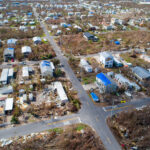A risk professional is no longer merely someone who just focuses on protecting assets, according to Ward Ching, a managing director of the Western region at Aon.
Ching not only sees a growing need for risk professionals to realize this evolution of risk management, but for people in many facets of the insurance industry to embrace the idea.
Beside his work at Aon, Ching is an adjunct professor at the USC Marshall School of Business and vice chairman of the RIMS-CRMP Commission.
RIMS-CRMP stands for Risk and Insurance Management Society-Certified Risk Management Professional, a designation Ching says is being increasingly sought after by a broader swath of professionals.
Ching bases his assessment of that growing interest on the composition of classes he’s taught to prepare students to attain the RIMS-CRMP designation over the last few years.
He and Joseph A. Milan, principal of JA Milan & Associates and a RIMS-CRMP commissioner, are set to teach such a workshop from Feb. 27 to 28 at the University of Southern California Marshall School of Business.
The two-day certification workshop, or prep course, at USC’s Los Angeles campus will cover the following five risk management exam domains:
- Analyzing the business model
- Designing organizational risk strategies
- Implementing the risk process
- Developing organizational risk competency
- Supporting decision making
The course is designed so students can get an in-depth lesson on the critical domains, while also getting an opportunity to engage with other students via group and individual exercises, as well as to provide an understanding of the test mechanics, what the test looks like and how it’s structured.
People can register for the class at www.marshall.usc.edu/RIMS. For more information about the RIMS-CRMP certification or to register for an exam visit www.RIMS.org/certification.
Ching was part of the team put together CRMP. He said this was done to fill a need in which risk and insurance professionals have begun to realize their customers want and need more than just to have their assets protected.
“People are asking difficult questions of our risk professionals,” Ching said.
Risk management questions have evolved beyond “What’s my risk profile,” with an increasing need to better utilize and understand analytics, according to him.
“Challenges and issues being presented in the risk management arena are not just insurance coverage issues, it’s a broader reality of risk-related problems,” he said.
CRMP been around for a few years, but it’s being embraced on a larger scale lately, Ching said.
“It’s picking up steam, certainly in the U.S., but it’s also picking up steam in Europe and Asia,” he said. “There are lots of people asking questions and moving toward advanced analytics and advance degrees in the risk management space.”
The RIMS-CRMP certification received official accreditation by the American National Standards Institute under ISO/IEC 17024:2012 in 2017. The ANSI Accreditation signifies that the institute recognizes the competence of RIMS to carry out certification activities in accordance with requirements defined in the International Standards and confirms approval by government and peer review assessments.
According to RIMS, 57% of RIMS-CRMP certification holders are directors, vice presidents or work within their organization’s C-suite.
Early on those who took the exam and became CRMP credentialed were predominantly professionals focused on risk management, but the scope of students coming to the CRMP has been broadening into the insurance profession and beyond, according to Ching.
“There are brokers and underwriters and audit firms that are beginning to recognize that the CRMP provides them with a framework and a designation with which to grow their risk management capabilities,” he said.
Ching believes the need for such knowledge will only grow in the near future.
“What we have right now is a significant shortage of risk management professionals to replace the individuals who are now in the process of retiring and moving on to other things,” Ching said. “This whole space is losing a whole generation of professionals because of retirement. And we’re looking to educate that next generation of risk professionals.”
Was this article valuable?
Here are more articles you may enjoy.


 4,800 Claims Handled by Unlicensed Adjusters in Florida After Irma, Lawsuit Says
4,800 Claims Handled by Unlicensed Adjusters in Florida After Irma, Lawsuit Says  Jury Awards $80M to 3 Former Zurich NA Employees for Wrongful Termination
Jury Awards $80M to 3 Former Zurich NA Employees for Wrongful Termination  Dubai Floods Expose Weaknesses to a Rapidly Changing Climate
Dubai Floods Expose Weaknesses to a Rapidly Changing Climate  Uncertainty Keeps Prices Up; No Prior-Year Loss Development: Travelers
Uncertainty Keeps Prices Up; No Prior-Year Loss Development: Travelers 

